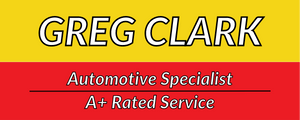How often to replace your brake pads is not a cut-and-dried question. Several factors contribute to how fast your brake pads wear down, such as driving style, vehicle type, and brake pad quality. Let us delve into these in greater detail and find out how to identify the need for brake pad replacement.
Factors that Wear Out Your Brake Pads Faster
Your Driving Style
Aggressive braking or frequent hard braking will wear out your brake pads more quickly than someone who has a gentler driving style. In a similar way, city driving—where there are frequent stops and starts—is harder on the brake pads as opposed to highway driving.
Vehicle Type
The heavier your vehicle, the harder the braking force applied; the harder the braking force applied, the faster the wear of brake pads. Also, it depends upon the type of brake pads your vehicle is equipped with; some materials are, by nature, harder than others.
Quality of Brake Pads
Good-quality brake pads are an investment worth their while in the long run. Although on the front end, they may cost a bit more, usually they last much longer and provide better braking performance, saving you bucks and hassles in the long run.
Signs Your Brake Pads Need Replacing
Squealing or Grinding Noises
Probably the most common indicator of worn brake pads is a large squealing or grinding noise when you apply the brakes. This mostly will come from the wear indicator which is usually a little metal tab embedded in the pad, which rubs against the rotor to let you know that it’s time for new brake pads.
Vibration or Pulsation in the Brake Pedal
If any vibration or pulsation in the brake pedal occurs while applying brakes, most likely your brake rotors are warped or damaged. It could be due to driving continuously with worn-out brake pads, where it’s causing metal on the backing plate to abrade with the rotor and create uneven wearing.
Thin Brake Pads
You can easily check your brake pads through the openings in the spokes of your wheels. If the friction material on the brake pads is below ¼ inch thick, it’s time to replace them.
When to Seek Help from a Professional
If you notice any of the signs mentioned above, it’s crucial to have your brakes inspected by a qualified mechanic as soon as possible. Ignoring worn brake pads can lead to further damage to your braking system, compromising your safety and potentially resulting in costly repairs.
Brake Service from Greg Clark Automotive
Here at Greg Clark Automotive Specialist, we know how crucial your braking system is. Our highly trained technicians can quickly identify any problems with your brakes and make repair or replacement suggestions that will keep you stopping efficiently. With our high-quality parts and competitive pricing, you receive the most value for your dollar.
Nip it in the bud! Contact Greg Clark Automotive Specialist today to schedule an inspection of your brakes and feel confident in the safety of driving every day.
Frequently Asked Questions
What factors can cause my brakes to wear out faster?
Several factors affect the wear and tear of your braking system, including:
- Driving style: Frequent hard or aggressive braking can accelerate wear.
- Type of vehicle: Heavier vehicles require more braking force, leading to faster wear.
- Quality of materials: Higher-quality components typically last longer and perform better.
How can I tell if my brakes need replacing?
Some common signs to watch for include:
- Squealing or grinding noises while braking.
- Vibration or pulsation in the brake pedal.
- A visible reduction in the thickness of the friction material (less than ¼ inch).
What happens if I delay replacing worn brakes?
Ignoring the signs of wear can cause damage to other components, such as the rotors, which can lead to costly repairs and reduced safety while driving.
How can I check the condition of my brakes at home?
You can inspect the friction material through the openings in your wheel spokes. If it’s worn down to less than ¼ inch, it’s time to replace them.
When should I consult a professional?
If you notice any unusual noises, vibrations, or decreased braking performance, it’s crucial to have a qualified technician inspect your system as soon as possible.
